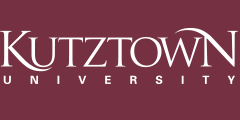Date of Award
Spring 4-6-2020
Document Type
Dissertation
DOI
10.70013/h4mx1bl7
Degree Name
Ed.D. Transformational Teaching and Learning
Department
Secondary Education
First Advisor
Helen S. Hamlet
Second Advisor
Kathleen Stanfa
Third Advisor
Scott L. Tracy
Abstract
Opportunity gaps have consistently been prevalent in the United States’ education system and that continues today. The struggle to provide economically disadvantaged students the equity necessary to ensure opportunities exist, similar to those present for students of economic advantage, remains a pervasive dilemma for which there are few solutions. As technology continually changes the global marketplace, it is doing the same to education. Educators have an enormous impact on the lives of their students, both in and out of the classroom and through their instruction, there are techniques available to ensure that students remain engaged. One such method is by using technology, specifically online/virtual learning to not only captivate student interest, but to reduce the already wide chasm that exists between students with and without the means to an equitable education. This action research study sought to determine any possible correlation that may be present between students that are economically disadvantaged who enroll in online courses and the effect it may have on their ability to complete those courses. Several theoretical viewpoints framed the study, including critical theory, social learning theory, ecological systems theory and online learning theory. The study was completed using data from online course enrollments from a southeastern Pennsylvania school district from a three-year time period. The online course data was further examined based on several defining characteristics, such as required as opposed to elective and the location in which students partook in the course; onsite or offsite. Online students were also delineated into whether they were considered economically disadvantaged based on eligibility for the Free and Reduced Lunch Program. Teachers from the school district’s middle school and high school were surveyed for their perceptions about online/virtual learning and the instruction of economically disadvantaged students. Drawing on all of the compiled data, the study showed that students who completed online, required courses in an onsite capacity passed them more frequently than those who took online, required courses offsite. The study also revealed that there are discrepancies between teachers and students in their perceptions of the effectiveness and usefulness of online/virtual learning.
Creative Commons License

This work is licensed under a Creative Commons Attribution-NonCommercial-No Derivative Works 4.0 International License.
Recommended Citation
Tartaglia, Anthony M., "The Potential Impact of Online Learning on Economically Disadvantaged Students" (2020). Education Doctorate Dissertations. 9.
https://research.library.kutztown.edu/edddissertations/9
Included in
Bilingual, Multilingual, and Multicultural Education Commons, Educational Assessment, Evaluation, and Research Commons, Educational Leadership Commons, Educational Methods Commons, Social and Philosophical Foundations of Education Commons, Teacher Education and Professional Development Commons


